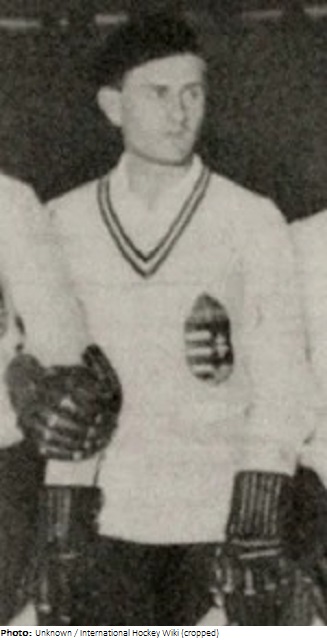
| Roles | Competed in Olympic Games |
|---|---|
| Sex | Male |
| Full name | József Maria Julius Simon•de Révay |
| Used name | József, Gróf•de Révay |
| Born | 20 October 1902 in Tajná, Nitra (SVK) |
| Died | 19 April 1945 (aged 42 years 5 months 30 days) in Gyömrő, Pest (HUN) |
| Affiliations | BKE, Budapest (HUN) |
| Title(s) | Gróf (Count) szklabinai és blathniczai |
| NOC |  Hungary Hungary |
József de Révay inherited the title Count Sklabiňa and Blatnica from his father, a life member in the Hungarian Upper House. The family’s old castle is located Turčianska Štiavnička while the residence was in Tajná (both now in Slovakia). De Révay was educated by a private teacher, then was enrolled in the Faculty of Arts, but only briefly. In 1925, he travelled to Paris for some time and also spent the summer in an artists’ colony in Hungary. In 1929, he even exhibited his paintings in the Great Spring Salon. From 1932-36 de Reváy attended the Peter Pázmány University in Budapest, studying philosophy, aesthetics and pedagogy, and graduating with a PhD in philosophy. He soon became an assistant professor and, after his habilitation, a professor at the university, where he engaged in the Philosophical Society and published journals and books. His main subject was morality and ethics, with his last work entitled “Psychology of work and pleasure.” During the last days of World War II, de Révay was arrested by the Communist police, interrogated and eventually killed.
As a sportsman József de Révay played for the Budapest Skating Club (BKE) from 1927-29 and the Hungarian Hockey Club (MHC) in 1930-32. He represented Hungary at the 1927 and 1929 European Championships and the 1928 Winter Olympics, earning 10 caps. He was also Hungarian Champion in field hockey (1929, 1932) and a nine-times Hungarian international in this sport.
| Games | Discipline (Sport) / Event | NOC / Team | Pos | Medal | As | |
|---|---|---|---|---|---|---|
| 1928 Winter Olympics | Ice Hockey (Ice Hockey) |  HUN HUN |
József, Gróf de Révay | |||
| Ice Hockey, Men (Olympic) | Hungary | 11 |